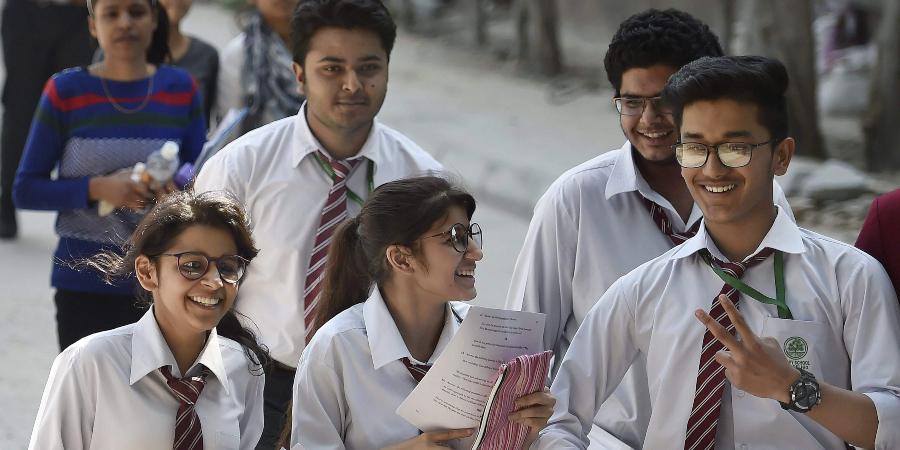
New Uniform Changes to Ease Parents’ Financial Burden
The Delhi government has introduced a new policy restricting private and aided schools from changing uniforms more than once every three years. This move aims to reduce the financial strain on parents and curb monopolistic practices by schools and vendors. Schools violating this rule will face strict legal action, including criminal charges.
In a major policy move, the Delhi government has imposed a cap on how frequently schools can change uniforms. Under the new regulation, private and aided schools will only be allowed to alter their uniforms once every three years. Schools that violate this rule will face strict legal action, including criminal charges. This decision comes after repeated complaints from parents about frequent and costly uniform changes, which placed an undue financial burden on them.
Why the Delhi Govt Enforced This Policy
The new rule aims to address the long-standing grievances of parents regarding the frequent and unnecessary changes in school uniforms.
-
Rising financial burden: Parents were often forced to buy new uniforms due to frequent design changes, increasing their expenses.
-
Vendor monopoly: Schools partnered with specific vendors, making it mandatory for parents to buy from them at inflated prices.
-
Lack of regulation: Until now, no policy restricted how often schools could change uniforms, giving them unchecked freedom.
Key Features of the New Policy
The Delhi government’s directive outlines clear guidelines to prevent frequent uniform changes and hold schools accountable.
-
Uniform changes capped at once in 3 years: Schools can now modify their uniforms only once every three years, ensuring consistency and reducing costs for parents.
-
Strict legal consequences: Schools found violating the rule will face criminal charges, including hefty fines and possible legal action.
-
Supervision by the Directorate of Education (DoE): The DoE will monitor schools to ensure compliance with the new regulation.
-
Complaint mechanism: Parents can report non-compliance directly to the Education Department.
Delhi Govt’s Rationale Behind the Decision
The Delhi Education Department has emphasized that the policy is designed to protect parents from exploitation and regulate unfair practices by schools.
“Frequent uniform changes have been a major financial strain on parents. This regulation will ensure schools cannot impose unnecessary expenses on families,” said an Education Department official.
The government has also warned schools that any violation will be treated as a criminal offence, highlighting the seriousness of the regulation.
Impact on Parents and Schools
The policy is expected to benefit parents significantly while holding schools accountable for their practices.
For Parents:
-
Reduced financial strain: Limiting uniform changes will save parents from repeatedly purchasing new uniforms.
-
Greater affordability: Parents will have the option to use uniforms for at least three years, making education-related expenses more manageable.
-
Freedom of purchase: The regulation discourages schools from monopolizing uniform sales through exclusive vendor tie-ups.
For Schools:
-
Restricted commercial gains: Schools will no longer be able to profit through frequent uniform modifications and vendor commissions.
-
Increased accountability: Schools will be under stricter scrutiny and face legal consequences for breaching the rules.
-
Uniformity in practices: The regulation promotes fairness by standardizing uniform policies across private and aided schools.
Reactions from Parents and School Authorities
The policy has been met with widespread approval from parents, who have long sought relief from the financial burden of frequent uniform changes.
-
Parents’ response: Many parents’ associations have welcomed the move, stating that it will bring much-needed financial relief.
-
School management’s stance: While some schools have expressed support for the regulation, others argue that it may limit their flexibility to rebrand or update uniforms.
Legal Consequences for Non-Compliance
The Delhi government has introduced strict penalties for schools that fail to comply with the new policy.
-
Criminal charges: Schools found violating the uniform cap rule will face criminal action, including potential fines and legal proceedings.
-
Complaint redressal system: Parents can report non-compliance directly to the Education Department, which will initiate immediate action.
How This Policy Benefits the Education Sector
The Delhi government’s decision is a positive step towards making the education system more affordable and transparent.
-
Protection against exploitation: The regulation prevents schools from exploiting parents through frequent uniform changes.
-
Fair practices: By capping uniform modifications, the policy promotes standardized and fair practices across schools.
-
Financial relief for families: The regulation significantly reduces the financial burden on parents, making education more affordable.
The Delhi government’s decision to cap school uniform changes to once every three years is a commendable step towards protecting parents from unnecessary expenses. By holding schools accountable and introducing strict legal consequences for violations, the government is promoting transparency and fairness in the education sector.
This policy not only brings financial relief to parents but also ensures that schools adhere to ethical practices. With this move, Delhi sets a precedent for educational reforms that prioritize the interests of families over commercial gains.